Montana Governor Steve Bullock Joins Crowded Democratic Field
Yet another candidate joins an already crowded field for the 2020 Democratic Presidential nomination.
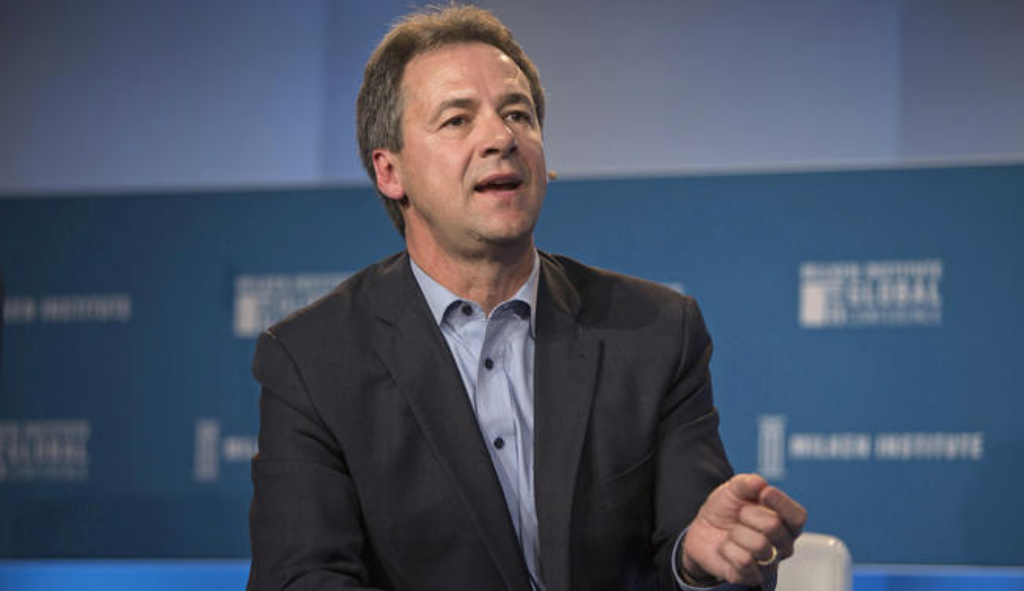
Montana Governor Steve Bullock, who has been hinting for some time that he was considering running for the Democratic Presidential nomination, made that decision official early this morning with a soft-launch on social media that is expected to be followed up by rallies later this week. In the end, though, it’s unclear if Bullock will be able to differentiate himself in a field that is now officially big enough at 22 candidates to field two football teams:
Gov. Steve Bullock of Montana, who was twice elected to lead a state that President Trump carried by more than 20 points, entered the Democratic presidential primary on Tuesday, vowing to elevate the issue of campaign finance and, more implicitly, to make Democrats competitive again across the country’s interior.
“We need to defeat Donald Trump in 2020 and defeat the corrupt system that lets campaign money drown out the people’s voice so we can finally make good on the promise of a fair shot for everyone,” Mr. Bullock said in a video centered on his record in Republican-leaning Montana.
He will formally announce his campaign Tuesday afternoon at the high school he attended in Helena, Mont., and later this week will spend three days in Iowa, the state where he is expected to put the most emphasis.
The candidacy of Mr. Bullock, the 22nd Democrat to enter the presidential race, amounts to a test of whether there is space for a little-known governor from a lightly populated state in a presidential field dominated by high-profile candidates from the two coasts.
A 53-year-old lawyer, Mr. Bullock made his name in Montana as a pragmatist who was able to win Republican support for liberal priorities like expanding Medicaid while burnishing his local credentials by protecting public lands.
He has also aggressively pushed for campaign finance regulations at a moment that Democrats are growing increasingly animated about the role of money in politics. And he signaled in his announcement that he would make it the centerpiece issue of his campaign, portraying a system “that serves campaign money” as the root of myriad policy failures.
“This is the fight of our time, it’s been the fight of my career,” he said.
Mr. Bullock has signed legislation in Montana imposing transparency requirements on nonprofit groups that take part in the state’s elections. And in 2018, he sued the Internal Revenue Service in an attempt to block a Trump administration mandate that would have stopped requiring political nonprofit groups to disclose their major donors.
The Montana governor appears to be highlighting political spending and public corruption in the same way his fellow western governor and presidential rival, Jay Inslee of Washington, is emphasizing the issue of climate change. By making it their signature political issue, they will, at least, draw attention to the issue and could propel their dark-horse candidacies.
(…)
Yet Mr. Bullock, who waited until his state’s legislative session ended to declare his presidential intentions, faces considerable challenges as he enters an already crowded Democratic field. He has little in the way of a fund-raising base, whether among wealthy donors or the party’s grass-roots base, and he could find it hard to break through the din at a time when celebrity and social media appeal have become central to presidential politics.
Mr. Bullock has repeatedly visited Iowa, and appears poised to have the support of the state’s long-serving Democratic attorney general, but has been there less often than some of his rivals, who have been in the race for months.
In addition to the structural impediments looming in his path, Mr. Bullock will also confront a challenge of his own making: the revelation that one of his former senior aides had been accused of sexually harassing several women. The aide, Kevin O’Brien, who worked for Mr. Bullock in Montana and in Washington when the governor ran the Democratic Governors Association, was fired from his role with the organization after an inquiry there revealed he had sexually harassed a female colleague.
Mr. Bullock knew why Mr. O’Brien was terminated but did not intercede to stop Mayor Bill de Blasio of New York from hiring him just weeks after his dismissal from the governors’ organization. And Mr. O’Brien would eventually be forced to resign from the mayor’s office after two more women accused him of sexual harassment.
“I fell short in my role preventing sexual harassment,” Mr. Bullock conceded in February. “I’m sorry, and I’m committed to doing much better.”
Some Democrats, in Washington and Montana, are still retaining hope that the governor may ultimately choose to run for the Senate instead of the presidency: Senator Steve Daines, a Republican, is facing his first re-election next year, and Mr. Bullock and Senator Jon Tester have proved that Democrats can win statewide in Montana, even in presidential election years.
The governor, however, has repeatedly said he has no desire to run for the Senate and said this year that he had “ruled it out.”
Were he to change his mind, Mr. Bullock may have imperiled his prospects for a Senate bid by coming out in favor of a ban on semiautomatic weapons; he took that stance in 2018 after presenting himself as a defender of gun rights during his campaigns for governor and attorney general.
Here’s the video that Bullock sent out on social media to kick off his campaign:
Bullock is a Montana native who received his undergraduate education at Claremont-McKenna College in California and graduated from law school at Columbia University in New York. After graduating law school, Bullock went to work in state government, serving as legal counsel to the Montana Secretary of State and in various positions in the Montana Department of Justice. In 2000, Bullock lost a race for Montana Attorney General after which he went to work in Washington, D.C. for a top D.C. law firm while also serving as an adjunct professor at George Washington University Law School. Bullock returned to Montana in 2004, opening his own law firm where he represented a wide variety of individual and business interests.
In 2008, Bullock ran again for Montana Attorney General in 2008, winning both the Democratic nomination and the General Election. During his time as Attorney General, Bullock became perhaps best known for his effort to defend the state’s 100-year-old campaign finance law against a challenge based on the Supreme Court’s Citizens United decision. In 2012, the Court dismissed the appeal in a paragraph long decision that basically declined to review the Citizens United holding. Bullock served for one term as Attorney General before running for Governor in 2012 in a bid to succeed fellow Democrat Brian Schweitzer, who had also considered running for President in the past. Bullock narrowly won the 2012 election over his Republican challenger notwithstanding the fact that Mitt Romney won the state by 14 points in the Presidential election, and won re-election quite handily in the 2016 election despite the fact that Donald Trump won the state by 20 points that year. Since July of last year, Bullock has served as head of the National Governor’s Association.
As I noted, Bullock is now the 22nd major candidate to join the Democratic field, and there are likely to be others before the field is actually complete ahead of the first debate scheduled for next month. New York City Mayor Bill DeBlasio, who has been flirting with the idea of running for President with frequent visits to Iowa and elsewhere over the past year, is apparently close to announcing a decision later this week even though everybody seems to be telling him not to run. In addition, there appears to be a possibility that Stacey Abrams, whose last major political move was losing the Georgia Governor’s race to Brian Kemp, will enter the race, making for a field of 24 candidates that is obviously unsustainable for anything but a short period of time.
As with many of the other entrants into the race, it’s unclear exactly what makes Bullock think he has even the remotest chance of breaking out of an already crowded field of candidates, never mind actually winning the nomination or General Election. Some analysts have tried to argue that Bullock can differentiate himself by the fact that he managed to win in states that Republicans are generally expected to win, but that doesn’t bear up to examination. Democrats have dominated the Governor’s Mansion for the entirety of the 21st Century, for example, and Democrats have dominated the state’s U.S. Senate roster for much of the past 30 years or more. Max Baucus, for example, held one of the Senate seats from Montana from 1978 until he retired early in President Obama’s term to become Ambassador to China, which ultimately led to the election of Steve Daines, the first Republican Senator from Nevada since Conrad Burns served from 1999 to 2007. While it is true that Montana has voted for the Republican election in every election since the 1968 Presidential election which the exception of Bill Clinton’s narrow win there in the 1992 Presidential election, calling Montana a “solidly” Republican state like the rest of the Mountain West is simply untrue.
As they have for other candidates, FiveThirtyEight lays out a potential scenario under which Bullock could win the nomination, but it doesn’t seem like a very probable outcome. Instead, Bullock is likely to linger in the back of the field and will be lucky to get into any of the upcoming debates. For now, I’d place him on the growing list of candidates who will likely drop out prior to the first votes being cast in Iowa in February of next year.

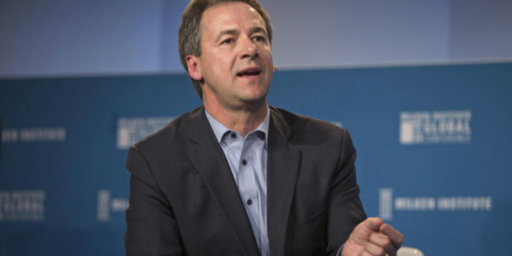
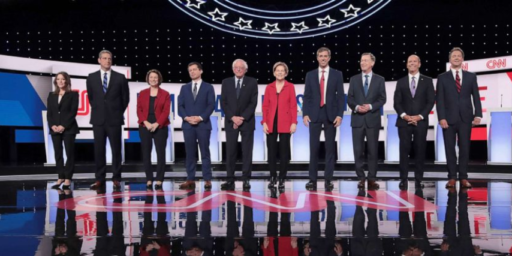
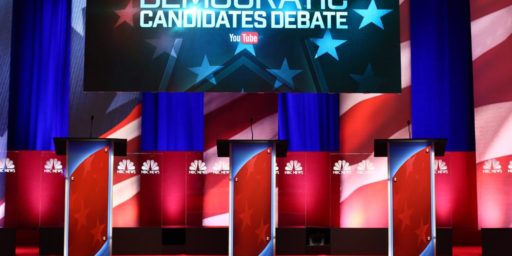
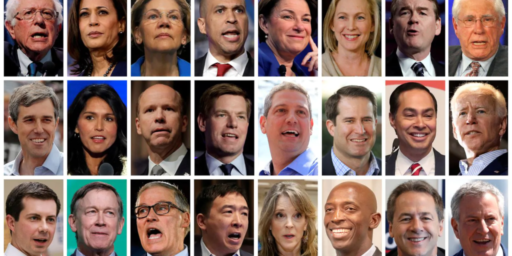

Has anyone kept a running count of how many candidates we now have on the Dem side?
@grumpy realist:
22.
Some of these candidates may require a King Ralph scenario, where a freak accident kills off all other candidates, leaving them alone and in a perfect position to win.
Is he played by Timothy Olyphant?
This is getting beyond ridiculous. Most of the recent entrants (Seth Moulton, Bullock, etc.) are never going to generate the “hey that’s interesting” factor that one needs to stand out in a crowded field. (See the Buttigieg v. Booker post…perfect example.)
I’d assume they are all just building a fundraising database but even that’s going to be a stretch at this point, it’s saturated.
Though I don’t see a path to the nomination, I’ve got to say his launch video has a critically important message nonetheless. Much like Gov. Inslee of Washington, Gov. Bullock appears to be running as a single issue candidate.
In both cases, the single issues they are focused on are extremely important. But unlike Inslee’s call to action on climate change, Bullock’s slam on dark money in politics is pointing at an issue that isn’t getting the same kind of attention. If any other Democratic candidate has made campaign finance and dark money the center of their campaign, I’m not hearing it.
But, it’s my belief that the Republican Party is the problem and Trump is mostly just the extremely corrupt, but rather inevitable, manifestation of decades of GOP decline at the behest of their donors. That means that campaign finance reform has to be a prerequisite correction to any other policy initiative. Left with a Republican Senate, especially one led by a McConnell emboldened by the success of his recent malignant tactics (Garland, lock-step allegiance to POTUS, etc.), not a single Democratic policy idea makes it to law.
Campaign finance reform, and to a lesser extent voter’s rights protections, are the battleground for the future return of majority rule. Let some other candidate pick-up Bullock’s issue, but please, please, don’t lose sight of it.
@Doug Mataconis: Wikipedia lists 23:
Michael Bennet
Joe Biden
Cory Booker
Steve Bullock
Pete Buttigieg
Julian Castro
John Delaney
Tulsi Gabbard
Kirsten Gillibrand
Mike Gravel
Kamala Harris
John Hickenlooper
Jay Inslee
Amy Klobuchar
Wayne Messam
Seth Moulton
Beto O’Rourkre
Tim Ryan
Bernie Standers
Eric Swalwell
Elizabeth Warren
Marianne Williamson
Andrew Yang
Additionally, Bill de Blasio basically said he’s going to enter, and Stacey Abrams is sending signals she’s thinking about it.
I am sure Pearce will be around soon to tell us how Bullock is the perfect candidate to go against Trump, and we should all rally around him, rather than suggest that he run for the Senate, where he would have a chance to make a difference in the 2020 results.
He seems like a perfectly cromulent candidate.
His campaign has a noble spirit, and I am sure will strive to embiggen the smallest man.
Still, Joe looks tough to beat. A Biden / Warren ticket should make the trumpster lose it.
And has provided an ideal way to set debate parameters–randomly divide the group into two teams to play touch football. Winning team gets prime time. Tyrell will be thrilled!
ETA:
Sadly, the MAJOR Democratic candidates probably realize that dark money is a key element in running a successful campaign.
@liberal caplitalist:
Without looking up the details, I’m pretty sure the combined age of Biden, Warren, Trump and Pence is greater than the age of the republic.
What if Dennison ran for the Democratic nomination?
I’m serious (not really). He’s invincible and unstoppable. He could easily win the nomination for both parties, then run against himself, and gain more electoral votes than any other candidate in history. Nothing says two parties can’t nominate the same idiot, right? Besides, this way the country will be united: one nation, one party, one Trump, -I mean, one God.
Tripleplusdoublegood!!1!
Didn’t you mean Trumpleplusdoublegood?!?!
@Mister Bluster:
I’ve tried saying Trumpelstiltskin, but that didn’t work.